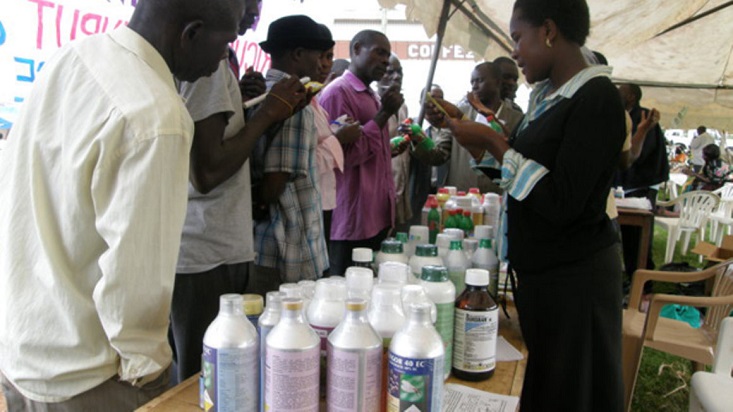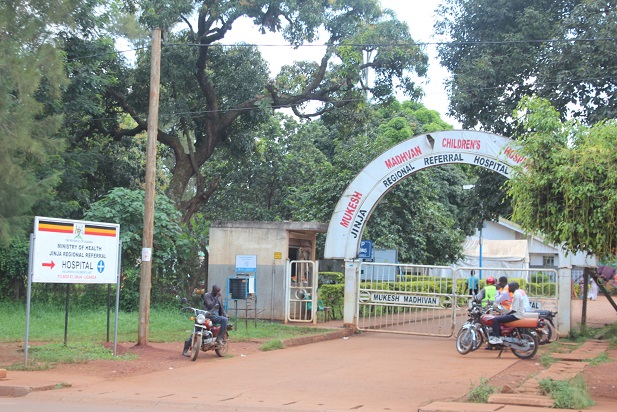An agro-input dealer explains how to spot a fake product during an exhibition.
The committee set up to investigate poor quality agro-chemicals has been urged to create a data bank to be able to estimate how big the acaricides business is in Uganda and how much of that has been infiltrated by counterfeits.
The 11 member committee was set up by the Agriculture Minister Frank Tumwebaze in July and given a 90-day mandate to formulate a white paper with clear regulations to solve the agriculture mess.
City lawyer Fred Muwema says the team can’t solve a problem they can’t estimate since there’s hardly any verifiable up to date data to describe the extent of the problem.
Anecdotal information shows there are up to 5000 agrochemical dealers but only about 2000 are licensed and can be traced.
Muwema who is also Director Legal Affairs at the Anti-Counterfeit Network-CAN said that Uganda has a batch of good laws to avert counterfeits but enforcing the laws has been difficult due to general lack of will by both government and dealers in agricultural inputs.
The Network proposed a range of recommendations including revoking licenses of dealers in counterfeits, reprimanding buyers and amending the Trademark Act of 2010 to have tougher penalties for those that deal in counterfeits.
According to preliminary findings from field visits, members said they have established that majority of the dealers are not educated citing Kamwenge where they found majority of the dealers to be just primary school dropouts.
Discussing the way forward, Committee Chair Prof. John David Kabasa said they have lined up a number of other stakeholders to talk to before coming up with a draft of the white paper. He said the key takeaways from the meeting include establishing the figures especially for the veterinary inputs.
In his remarks, Stephen Kisaka the Secretary of the Committee says they are tasked to characterize complaints in the market and review the appropriateness of agro chemical inputs in addition to establishing whether the problem is really with the chemicals or the organisms that farmers have to deal with.
-URN





